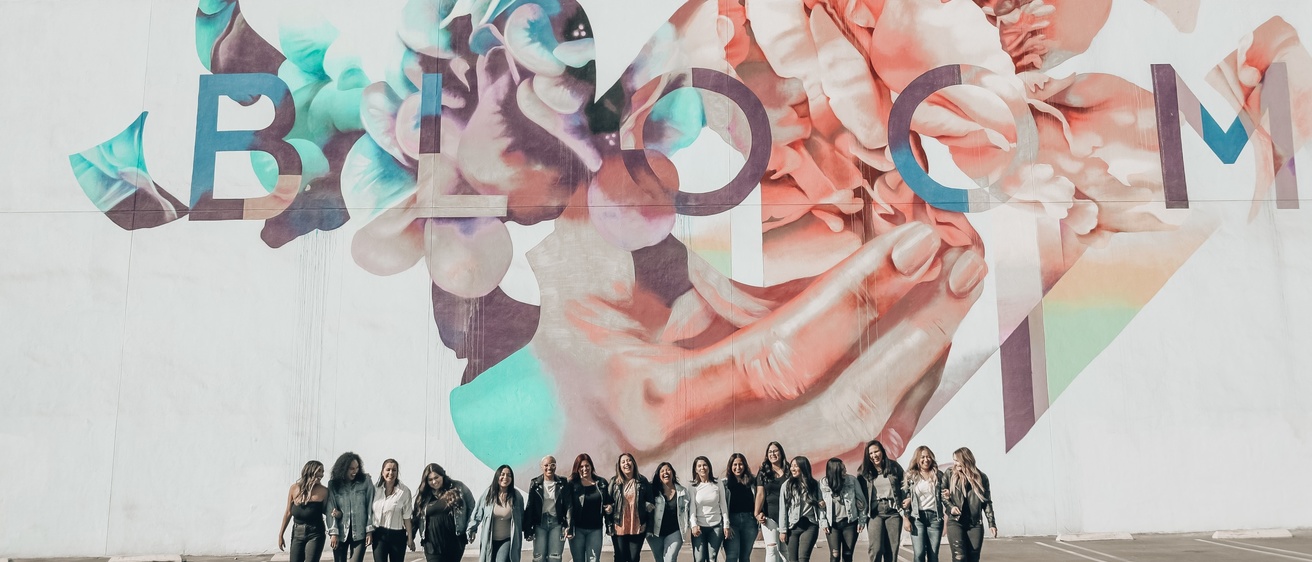
What differences have you observed in how European/Italian students approach leadership (and what it means to be a leader), compared to American students?
When I am in class with the CIMBA MBA students, one thing I noticed is a lot of supportiveness and positivity among the students. They will be leaders who really care about others and care about the culture of the organization and the community. In the USA, my MBA students are a little more individualistic and think more about “me as a leader“. There is a greater sense of connectivity between people here at CIMBA. I feel there is great care and that translates into leaders who care for others.
We talk about mentorship frequently in our leadership class. What are some mentors that have made a huge impact on your career/life?
My uncle has been a mentor who has consistently made a large impact on my career and life. He was a chief officer at Kodak when the company was starting its decline. Now, he is a consultant with Deloitte. He is approximately 12 years older than me, so he is a little bit ahead of me in his career. He has traveled, worked in numerous countries, held several executive positions, and advised other companies. Due to this experience, he has been a good sounding board during times of uncertainty. These moments span from when I finished business school and was looking for a new job, to times when I didn't how to proceed in a particular work situation. He guided me through these situations by asking me questions that helped me reflect. He actively listens, provides his advice, and is always able to understand what I am dealing with. Additionally,
Were there any female mentors that have helped you on your journey as well?
Keeping it with the theme of family, I would say my aunt was an important female mentor in my life. She cared for me and would babysit me when I was little, so I always had an affinity for her. She was a woman who became very powerful in design and opened her own auction house. Through this, she became highly influential in the world of American design. She was really an inspiration for me because she was able to maintain a lot of core feminine principles without attempting to become a hypermasculine version of herself. She was very powerful and found a power within her femininity. She believed in her talents and advocated for herself, and she always advised me to do the same in moments of struggle.
How can females empower themselves to take on a leadership role in a field that is male-dominated?
It's always important to be your authentic self. I would never advocate for anyone to change who they are to fit into an organization. Women need to find an organization that is a good fit for them and where they feel comfortable being themselves. When in a male-dominated field, one thing I would encourage women to adjust is the way they communicate. For example, not using exclamation points or emojis in emails, and focusing on facts and data to support an argument. Overall, however, I would say that it is all about finding a place where a woman feels like she fits and can bring the best version of herself to work every day.
Which is/ are the essential steps in your opinion that the company has to make in order to enable more women to take leadership positions within the company?
An important first step is proactively building and maintaining a company culture that values all voices. This will help not only women but all different types of people. I have seen cultures where senior leadership hears only one voice and shuts down others. When people in the middle of an organization see that only one type of voice is important to senior leadership, they will only listen to those voices. But if an organization has a culture of listening to all voices, encouraging descent, and encouraging diverse perspectives, then that organization reinforces a culture in which all voices are heard throughout the organization.
We talk about how establishing one's values and motivations can be an integral part of establishing oneself as a leader. How do you personally motivate yourself and stay motivated?
When I was in my MBA program, I completed the Clifton StrengthsFinder and one of my strengths is “developer”. This strength is what keeps me motivated the most. For me, it's really thinking about how to help others. From my son, to my husband, to how we operate in our family unit, I like to know that we are improving all the time. I think about how we can all communicate and respond to each other more effectively. Additionally, I also use this strength when leading within an organization. This strength encourages me to be mindful of others and adopt a servant leadership style in which I ask “what can I do to help you get to where you want to be?” My “developer” strength also plays a crucial role in my teaching. I have been in and out of teaching for 23 years, so I find that helping others learn and grow makes me happy.
What do you see as the biggest challenge young leaders will face in the near future?
A major challenge will be making decisions in unpredictable environments. Leaders of the future need the confidence to be decisive in times of great uncertainty. You will be asked to make decisions when you do not have all the information, when you do not have enough time, and when you cannot predict the exact outcome. But, you will still need to mobilize people and move them in a direction. The world is becoming more and more uncertain, but you still must find a direction and go with it. People want the leader to set the direction and have a vision. Leaders who can be decisive in uncertainty are the leaders we need for the future.

